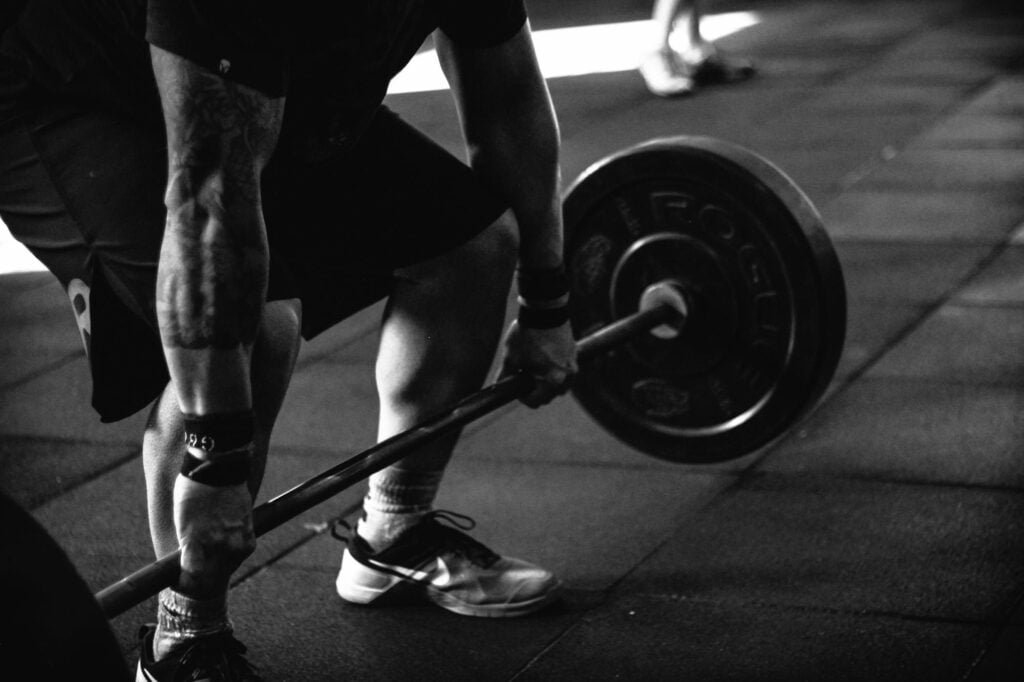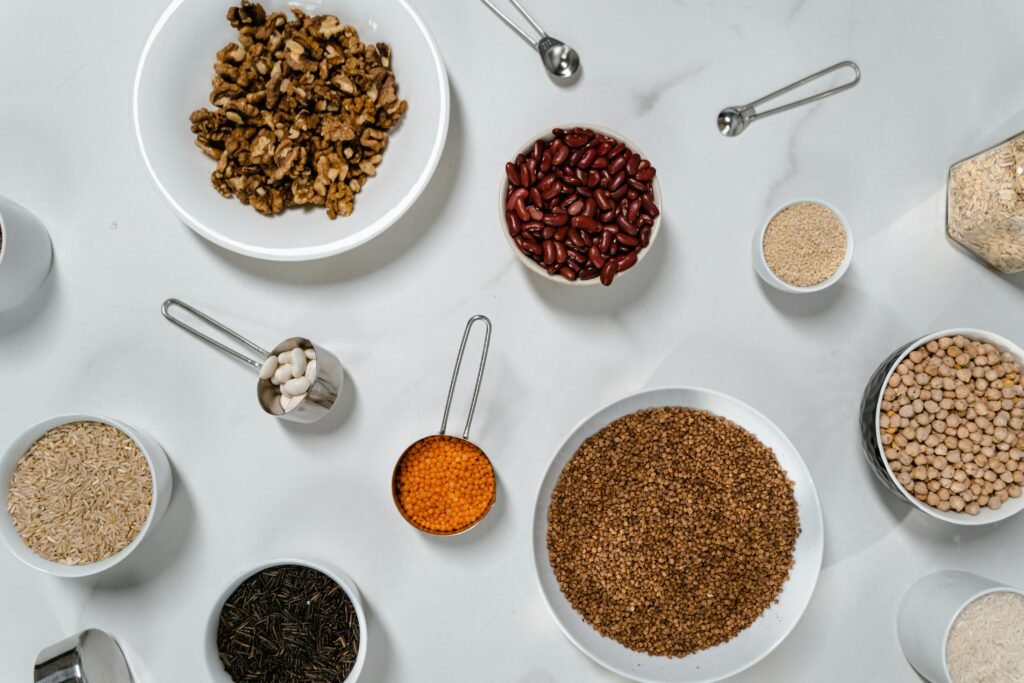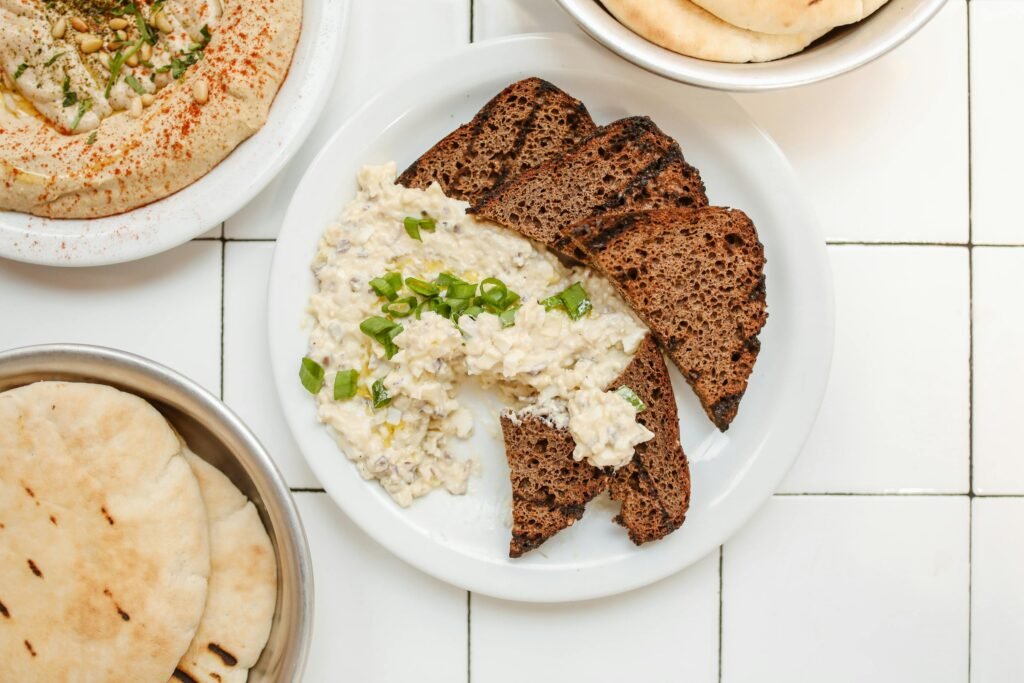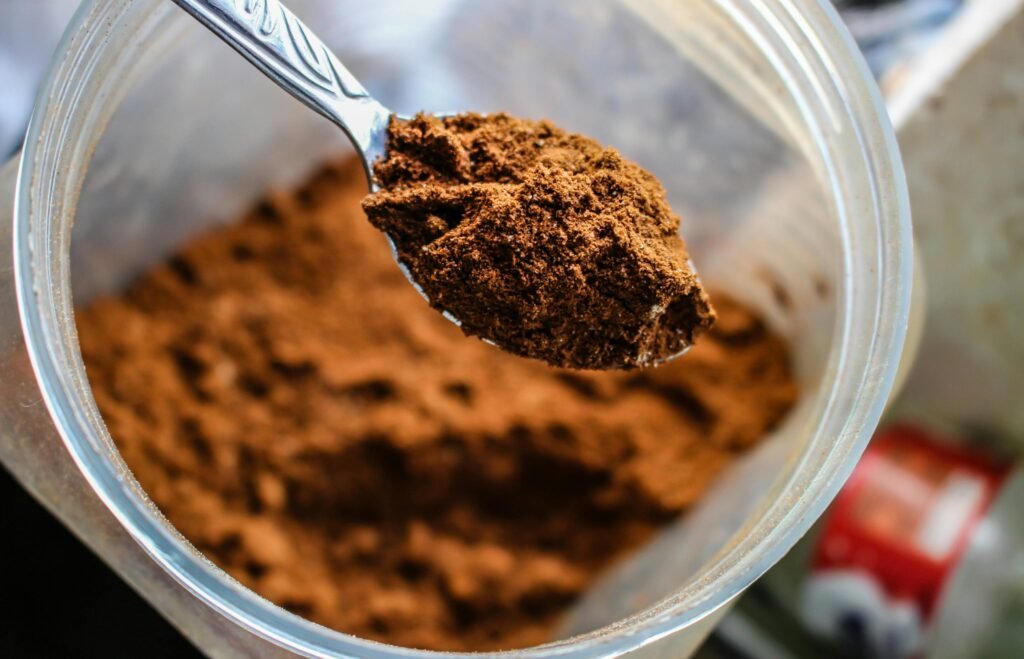Learn how to build muscle on a plant-based diet with effective tips, high-protein foods, meal plans, and proven strategies for gaining muscle naturally.
Why Choose a Plant-Based Diet for Muscle Building?
Plant-based diets are rich in nutrients, antioxidants, and fiber, which are crucial for overall health and recovery. They also reduce the risk of chronic diseases and help the environment. The key is to ensure you’re getting the right nutrients in the right amounts to fuel muscle growth.
The Basics of Muscle Building

To build muscle, your body needs:
- Adequate Protein: Protein is essential for repairing and growing muscles.
- Caloric Surplus: Eating more calories than you burn gives your body the energy it needs to build muscle.
- Strength Training: Lifting weights or doing resistance exercises is essential to stimulate muscle growth.
- Rest and Recovery: Your muscles grow when you rest, so don’t skip rest days.
How Much Protein Do You Need?
Aim for about 0.7 to 1.0 grams of protein per pound of body weight daily. This means if you weigh 150 pounds, you should consume 105 to 150 grams of protein each day.
Top Plant-Based Protein Sources

Ensuring a variety of protein sources helps you get all essential amino acids for muscle growth. Here are some top plant-based protein sources:
- Legumes (lentils, chickpeas, black beans): 15-20g of protein per cup
- Tofu and Tempeh: 15-20g of protein per 3.5 ounces
- Quinoa: 8g of protein per cup (cooked)
- Edamame: 17g of protein per cup (cooked)
- Nuts and Seeds (chia seeds, hemp seeds, almonds): 5-10g of protein per ounce
- Seitan: 21g of protein per 3.5 ounces
- Spirulina: 4g of protein per tablespoon
Combining Protein Sources for Complete Amino Acids

Unlike animal proteins, not all plant-based proteins are complete (containing all essential amino acids). To ensure you’re getting a complete protein profile, combine different sources. For example:
- Rice and beans
- Whole grain bread with peanut butter
- Hummus with whole wheat pita
Building Lean Muscle with a Plant-Focused Diet

1. Eat a Variety of Foods
Include different protein sources, vegetables, fruits, whole grains, nuts, and seeds in your diet. This helps you get a wide range of nutrients necessary for muscle building.
2. Prioritize High-Calorie, Nutrient-Dense Foods
Building muscle requires a caloric surplus. Include calorie-dense options like avocados, nuts, seeds, and nut butter to meet your daily caloric needs without feeling overly full.
3. Time Your Meals Around Workouts
- Pre-Workout: Eat a balanced meal with protein and carbs 1-2 hours before exercising.
- Post-Workout: Aim for a meal containing 20-30g of protein and some carbs within 1-2 hours after your workout to aid recovery and muscle growth.
4. Consider Supplementing

While a well-planned diet can provide all the nutrients you need, you might benefit from supplements like:
- Protein Powders: Pea, hemp, soy, or brown rice protein powders can help you meet your protein requirements.
- Creatine: A supplement that can help improve strength and muscle growth.
- Vitamin B12: Since it’s primarily found in animal products, supplementing B12 is important on a plant-based diet.
5. Stay Consistent with Training
Focus on progressive overload, meaning gradually increasing the weights you lift or the intensity of your exercises. This ensures continuous muscle growth.
Meal Plan Example for Muscle Building on a Plant-Based Diet
Breakfast:
- Oatmeal topped with chia seeds, almond butter, and banana
- A side of tofu scramble with spinach and tomatoes
Snack:
- A smoothie with pea protein powder, spinach, frozen berries, and almond milk
Lunch:
- Chickpea and quinoa salad with mixed veggies, avocado, and a tahini dressing
Snack:
- Rice cakes with hummus and sliced cucumber
Dinner:
Golden stir-fried tofu on a bed of brown rice with broccoli on the side
Post-Workout Snack:
- A protein shake with hemp protein powder, water, and a handful of frozen fruit
The Truth Behind Plant-Based Diets and Muscle Growth
Myth 1: You Can’t Get Enough Protein from Plants
Many people mistakenly believe that plant-based diets don’t provide enough protein. As shown above, there are plenty of high-protein plant foods available, and when combined, they can provide all the amino acids your body needs.
Myth 2: Plant Proteins Are Incomplete
While it’s true that many plant proteins are incomplete, eating a variety of foods ensures you get all essential amino acids over the course of the day.
Myth 3: You Need Animal Products for Strength and Muscle Gains
Many elite athletes, bodybuilders, and fitness enthusiasts have achieved remarkable strength and muscle growth on plant-based diets, proving that animal products are not essential.
FAQs About Building Muscle on a Plant-Based Diet

Q: Can I build muscle without protein shakes? A: Yes, protein shakes are convenient but not essential. You can get all the protein you need from whole foods if you plan your meals well.
Q: When will I start noticing changes? A: Results vary, but with consistent training and proper nutrition, you may start noticing muscle growth within 4-6 weeks.
Q: What can I do if I’m always feeling hungry? A: Increase your intake of calorie-dense foods like nuts, seeds, and avocados. Make sure you’re eating enough complex carbohydrates, as they provide sustained energy.
Final Thoughts
Building muscle on a plant-based diet is not only possible but also comes with a host of health benefits. By prioritizing protein-rich foods, combining different sources, and sticking to a consistent workout routine, you’ll be well on your way to achieving your muscle-building goals. Remember, patience and consistency are key—stick with it, and your hard work will pay off!
You can Also Try this Natural Digital Products = Herbs For Health – Only Herbal Remedies Offer! | EBooks